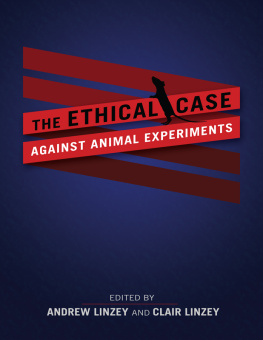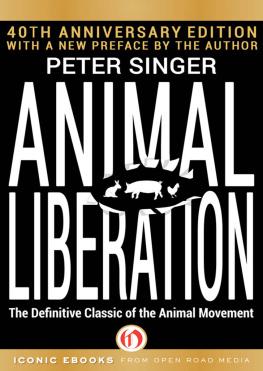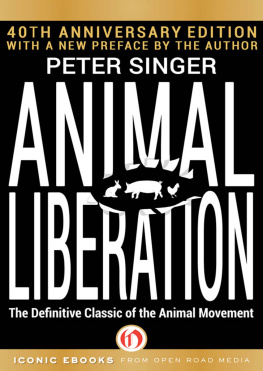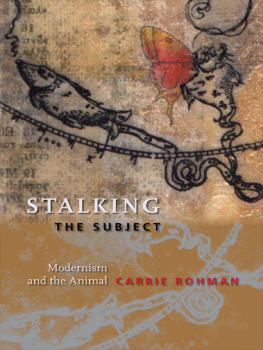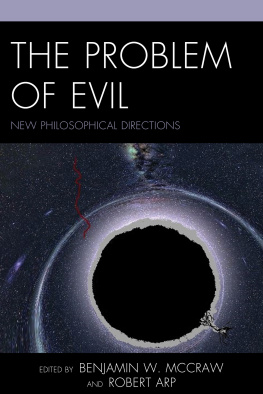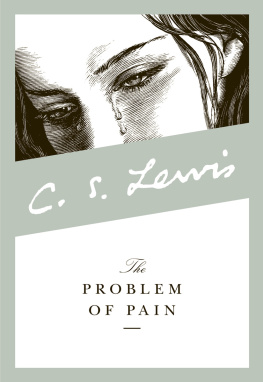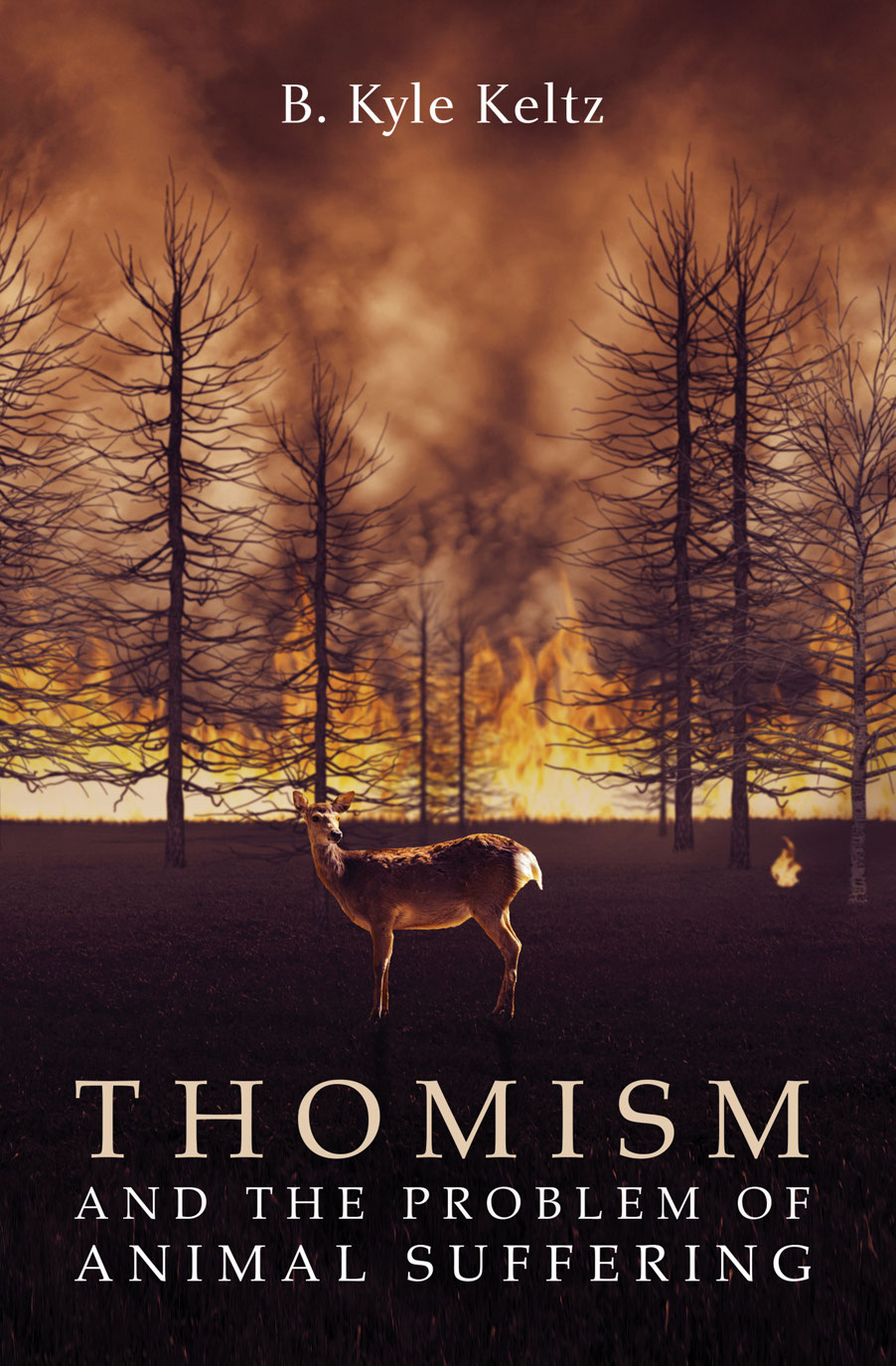Thomism and the Problem of Animal Suffering
B. Kyle Keltz
Thomism and the Problem of Animal Suffering
Copyright 2020 B. Kyle Keltz. All rights reserved. Except for brief quotations in critical publications or reviews, no part of this book may be reproduced in any manner without prior written permission from the publisher. Write: Permissions, Wipf and Stock Publishers, 199 W. 8th Ave., Suite 3, Eugene, OR 97401.
Wipf & Stock
An Imprint of Wipf and Stock Publishers
199 W. 8th Ave., Suite 3
Eugene, OR 97401
www.wipfandstock.com
paperback isbn: 978-1-7252-7280-4
hardcover isbn: 978-1-7252-7279-8
ebook isbn: 978-1-7252-7281-1
Manufactured in the U.S.A. 05/15/20
Scripture quotations taken from the New American Standard Bible (NASB), Copyright 1960, 1962, 1963, 1968, 1971, 1972, 1973, 1975, 1977, 1995 by The Lockman Foundation Used by permission. www.Lockman.org
Abbreviations
De anima Thomas Aquinas. Quaestiones disputatae de anima. Translation available in Robb, James H., trans. Questions on the Soul. Milwaukee: Marquette University Press, 1984.
De Ente Thomas Aquinas. De ente et essentia. Translation available in Maurer, Armand, trans. On Being and Essence. 2nd rev. ed. Toronto: Pontifical Institue of Mediaeval Studies, 1968.
De Malo Thomas Aquinas. Quaestiones disputatae de malo. In On Evil. Translated by Richard Regan. Edited by Brian Davies. New York: Oxford University Press, 2003.
De Veritate Thomas Aquinas. Quaestiones disputatae de veritate. Translation available in Mulligan, Robert W., et al., trans. Truth. 3 vols. Indianapolis: Hackett, 1994.
In De Anima Thomas Aquinas. Sentencia libri De anima. In Aristotles De Anima with the Commentary of St. Thomas Aquinas. Translated by Kenelm Foster and Sylvester Humphries. New Haven: Yale University Press, 1951.
SCG Thomas Aquinas. Summa contra Gentiles. In Summa Contra Gentiles. Translated by Laurence Shapcote. Aquinas Institute, Inc. https://aquinas.cc/la/en/~SCG1.
ST Thomas Aquinas. Summa theologiae. In Summa Theologiae. Edited by John Mortensen and Enrique Alarcn. Translated by Laurence Shapcote. Aquinas Institute, Inc. https://aquinas.cc/la/en/~ST.I.
1
The Problem of Animal Suffering
The problem of evil is an issue that humans have pondered since ancient times. Why do people suffer and die, and why do people mistreat each other so much? In the context of theism, the problem of evil becomes even worse. It is assumed that if there is an all-good, all-powerful, and all-knowing God who created and sustains the world, then that God would prevent evil from happening; yet evil occurs each day in our world.
Of course, there are many proposed solutions to the problem. Many theists (at least as far back as Augustine of Hippo) have argued that people are allowed to perform evil because God wants a world with free-willed beings. The only way for God to guarantee that no evil occur would be for him to eliminate the free will of angels and humans. But for various reasons, God wants a world with free-willed beings. Thus, God allows evil by preserving free will. Moral evil (e.g., theft, murder, rape, etc.) exists because humans have free will, and natural evil (e.g., disease, earthquakes, tornadoes, death, etc.) possibly exists because of the free will of fallen angels.
Other theists (at least as far back as Irenaeus) have argued that God allows evil so humans will mature spiritually in preparation for living with God forever in the afterlife. If moral evil did not exist, humans would never learn the value of moral choices. Moreover, without natural evil, humans would not fully appreciate living with God in an afterlife devoid of suffering. This soul-making view concludes that the existence of evil is not an accident because it is intended for a good purpose.
The history of Christian philosophy is filled with discussions on evil and why God might allow it. Yet, the discussion, until recent times, has focused on why bad things are allowed to happen to human beings. Theists generally did not think it necessary to provide a reason for why God allows nonhuman animals to suffer and die. Until modern times, theists believed that animals were created by God specifically to serve and provide food for humans. Christian theologians, such as Augustine, argued that predatory animals were necessary for the beauty of the world. Following Aristotle, Thomas Aquinas did not believe that nonhuman animal suffering is morally significant because nonhuman animals do not possess rational souls.
It seems that two main factors gave rise to a higher awareness of animal suffering among Christian theologians in the modern period: social changes and scientific advancements. Regarding social changes, pet-keeping became widespread in Europe among the middle class in the 1600s. Derek Wiertel believes that although pet-keeping was not new to European society, especially among the upper classes, pet-keeping was a crucial factor in deepening an appreciation for the moral status of nonhuman animals.
Scientists increasingly began uncovering evidence for the vast amount of nonhuman animal suffering in this period also. In the late 1600s, English natural philosopher Robert Hooke confirmed that fossils were the preserved remains of once-living organisms (Micrographia, 1665). In the late 1700s, scientists, such as Comte de Buffon (Les poques de la Nature, 1778) and Pierre Laplace (Exposition du systme du monde, 1796), theorized that the earth was formed according to natural laws over a long period of time. In the 1800s, Jean Lamarck proposed the idea that animals can acquire new traits based on the environment in which they live (Philosophie Zoologique, 1809), and Charles Darwin theorized that animal populations arise from common descent and natural selection (On the Origin of Species, 1859).
As more scientists concluded that the earth and all life on earth formed through natural processes over long periods of time, so also did they become increasingly aware of the vast amount of nonhuman animal suffering in the earths natural history. Among these scientists, Darwins comments on nonhuman animal suffering are probably the most famous. In a letter to Asa Gray on May 22, 1860, Darwin wrote,
With respect to the theological view of the question; this is always painful to me. I am bewildered. I had no intention to write atheistically. But I own that I cannot see, as plainly as others do, & as I should wish to do, evidence of design & beneficence on all sides of us. There seems to me too much misery in the world. I cannot persuade myself that a beneficent & omnipotent God would have designedly created the Ichneumonid with the express intention of their feeding within the living bodies of caterpillars, or that a cat should play with mice. Not believing this, I see no necessity in the belief that the eye was expressly designed. On the other hand I cannot anyhow be contented to view this wonderful universe & especially the nature of man, & to conclude that everything is the result of brute force. I am inclined to look at everything as resulting from designed laws, with the details, whether good or bad, left to the working out of what we may call chance. Not that this notion at all satisfies me. I feel most deeply that the whole subject is too profound for the human intellect. A dog might as well speculate on the mind of Newton. Let each man hope & believe what he can.


